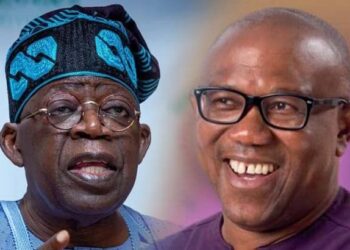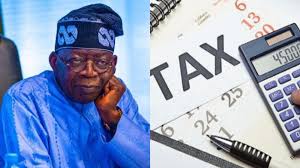
Fitch Ratings has affirmed Nigeria’s long-term foreign-currency Issuer Default Rating (IDR) at ‘B’ and assigned the country a Stable Outlook.
According to a statement from the global rating agency on Friday, Nigeria’s ‘B’ rating was supported by the large size of the economy, a low general government (GG) debt-to-GDP ratio, small foreign-currency (FX) indebtedness of the sovereign and a comparatively developed financial system with a deep domestic debt market.
It, however, pointed out that the rating was constrained by particularly weak fiscal revenue, comparatively low governance and development indicators, high dependence on hydrocarbons and continued weak growth and high inflation.
Fitch noted that Nigeria continued to contend with external liquidity pressures that were magnified by the 2020 pandemic-related shock and resilience to adverse external developments was weak.
“Despite gradual and moderate exchange-rate depreciation over the last year, the naira remains overvalued. Persistent double-digit inflation under a tightly managed multiple-window exchange-rate regime could drive further misalignment of the currency relative to fundamentals,” it added.
It forecast inflation to average 16 per cent in 2021 and 13.4 per cent in 2022, driven by a number of cost-push factors.
“Currency overvaluation will hamper a correction of external imbalances. Nigeria’s long-standing current account (CA) surplus shifted to a deficit of 4.2 per cent of GDP in 2019, driven by a fast rise in imports.
“We estimate a stable CA deficit of 4.2 per cent of GDP in 2020, as import compression from domestic demand contraction and restrictions on FX access offset a slump in hydrocarbon exports and remittances.
“The CA deficit will narrow to an average of 1.6 per cent of GDP in 2021-2022, much smaller than the forecast average median of 4.3 per cent for the ‘B’ rating category, supported by the recovery in oil prices,” it added.
According to Fitch, downward pressures on the naira and continued CA deficits could strain international reserves, amid a subdued outlook for FDI and portfolio inflows.
It stated that at their current level, international reserves would cover five months of the forecast current account payments in 2021, better than the forecast ‘B’ median of 4.2 months.
“Government plans to enhance external concessional borrowing and a possible sovereign Eurobond issuance could support FX reserves,” it added.
The Central Bank of Nigeria (CBN) estimates it has cleared through spot and forward FX sales most of the backlog of FX demand by foreign portfolio investors, which it evaluates at around $2 billion.
However, Fitch believes a backlog of FX demand for imports and capital repatriation would still constitute a sizeable drain on reserves should FX supply normalise. Continued FX restrictions could protect reserves, but protracted hard-currency scarcity would harm production, spur inflation and forestall a recovery in international investor confidence, the rating agency added.
“The outlook for public finances is mostly a function of oil revenues, given the low level of non-hydrocarbon fiscal receipts, while there is little leeway to further reduce spending.
“We foresee little progress on boosting tax revenue in the medium term due to compliance issues, administrative capacity challenges and resistance to the phasing out of tax credits,” it added.
It forecast a narrowing in the GG deficit to four per cent of GDP in both 2021 and 2022, from 6.3 per cent in 2020, better than the forecast ‘B’ median of seven per cent and 4.8 per cent, respectively.
“The improvement in the fiscal deficit will be driven by the rebound in oil prices to well above the level assumed in the 2021 budget and the revival in economic growth.
“A $10 change in the oil price per barrel relative to our baseline would affect the GG balance by around 0.5 per cent of GDP, while a 10 per cent change in annual average oil production would impact the GG deficit by 0.3 per cent of GDP.
“Social resistance to the ongoing reforms of costly energy subsidies raises risks to our budget forecast, as similar reforms have been reversed in the past due to social pressures.
The government has so far held to its March 2020 commitment to the full elimination of the implicit fuel-price subsidy, but retail prices are yet to be adjusted to the rise in benchmark prices in 2021, which could mark a de facto return of the implicit subsidy.
Stiff labour union opposition has also delayed a further adjustment of electricity tariffs, which are unlikely to reach cost-recovery levels in 2022 as targeted by the government, in our view.
The government has plans to securitise the loans it contracted under CBN’s Ways and Means (W&M) facility in recent years. Government borrowing from the CBN since 2015 has led to the accumulation of a N13.2 trillion (8.6% of GDP) balance under the W&M facility end-September 2020, representing around 28 per cent of the total GG debt stock, by our estimates.
“Repeated recourse to large central bank financing could complicate macroeconomic management and hinder the central bank’s ability to tame inflation, particularly if it exceeds limits set under existing institutional safeguards, in our view.
“The authorities have not solicited any relief under the G20’s Debt Service Suspension Initiative (DSSI). The benefit from joining the initiative in 2021 would be small.
“We do not expect the government to request any debt relief under the G20’s Common Framework as the authorities attach high importance to access to international markets.
“Average growth in 2020-2021 will be in line with rating peers. We expect GDP to grow by two per cent in 2021, following an 1.8 per cent contraction in 2020, reflecting favourable base effects and the rise in oil prices.
“The recovery will be held back by FX scarcity, infrastructure gaps, electricity outages and security-related disruptions. The long-awaited Petroleum Industry Bill is currently being examined by parliament,” it added.












